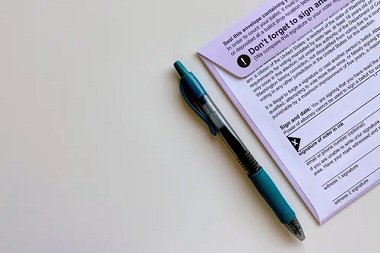The electioneering laws don’t prevent people from showing up at your home
 Editor’s note: this is the first of a multi-part series on Oregon’s mail-in ballots.
Editor’s note: this is the first of a multi-part series on Oregon’s mail-in ballots.
In 1990, Congress passed the Americans with Disabilities Act (ADA) recognizing that people with disabilities had been precluded from fully participating in all aspects of society including voting. Oregon instituted Disability Voting Right using a tablet or computer which allows for assistance.
Janice Dysinger, Oregonians for Fair Elections, says that “anyone’s citizenship status or residence status is difficult to verify because they may not be directly filled out by the voter. Some have language barriers requiring interpreters if specific language documents aren’t available, and the position is that it isn’t the agency’s job to find out if they are qualified. By signing the registration form they certify to it being true.†If needing assistance to register, it begs the question of needing assistance to vote.
When Kate Brown was Secretary of State, the Mark and Dave radio show on KEX asked the audience who completes the ballots in your house. People were calling in and laughing about it. A high school kid marked his dad's ballot, had the dad sign it and mailed it for him. A wife completed her husband's ballot, had him sign it and mailed it for him. And so it went on for the entire show.
The next day they invited then Secretary of State Kate Brown to comment about the responses on the show. She assured the listeners that it is completely legal to mark another person's ballot, as long as the voter signs the ballot.
But, what of people that sign (forge) someone’s signature on a ballot? The excuses are many: they weren’t around to sign, they told you to sign for them, they don’t know English, or they have a disability. Good, honest people are freely interrupting laws without knowing the consequences. Coercion in voting assistance comes with a maximum penalty of $1,000 fine and 10 hours of community service. Voting has gotten so casual in Oregon that people are doing this and don't even know the problem it creates.
ORS 254.445, originally passed in 1985, lists the rules on assisting in marking ballots.
Allowances and Limitations
- Any voter who, due to a disability or inability to read or write, is unable to mark their ballot may receive assistance.
- The assistance is provided either by two persons of different political parties provided by the county clerk or by some other person chosen by the voter.
- Any person assisting a voter must follow the direction of the voter as to how to vote the ballot.
- The person assisting the voter must not afterwards give out any information about how the voter voted.
- Additionally, a person may not provide such assistance if they are an employer of the voter or an agent of the employer. Also, a person may not provide such assistance if they are an officer or agent of a union of which the voter is a member.
Assistant violations would never happen at a polling place. The people that are "helping" other voters are casting votes that they shouldn't be. If a voter isn't informed enough or has the motivation enough to go to the polls or even complete their own ballot at home, they shouldn't be voting. Voting has gotten so casual in Oregon that people are breaking rules and don't even know the problem it creates. It presents a strong case for polling places to keep people honest.
We must also recognize that there are people that actually want to change an election? Hans von Spakovsky, senior legal fellow at The Heritage Foundation, says “the purpose of in-person voting is under the supervision of election officers and poll watcher... The electioneering laws don’t prevent people from showing up at your home. That means party activist, campaign staffers, political guns for hire can show up at your home.†What happens to all the ballots floating around? It's the perfect environment for coercion and falsely filing multiple ballots.
--Donna Bleiler| Post Date: 2020-08-30 09:33:46 | Last Update: 2020-08-25 09:45:01 |







 Editor’s note: this is the first of a multi-part series on Oregon’s mail-in ballots.
Editor’s note: this is the first of a multi-part series on Oregon’s mail-in ballots.